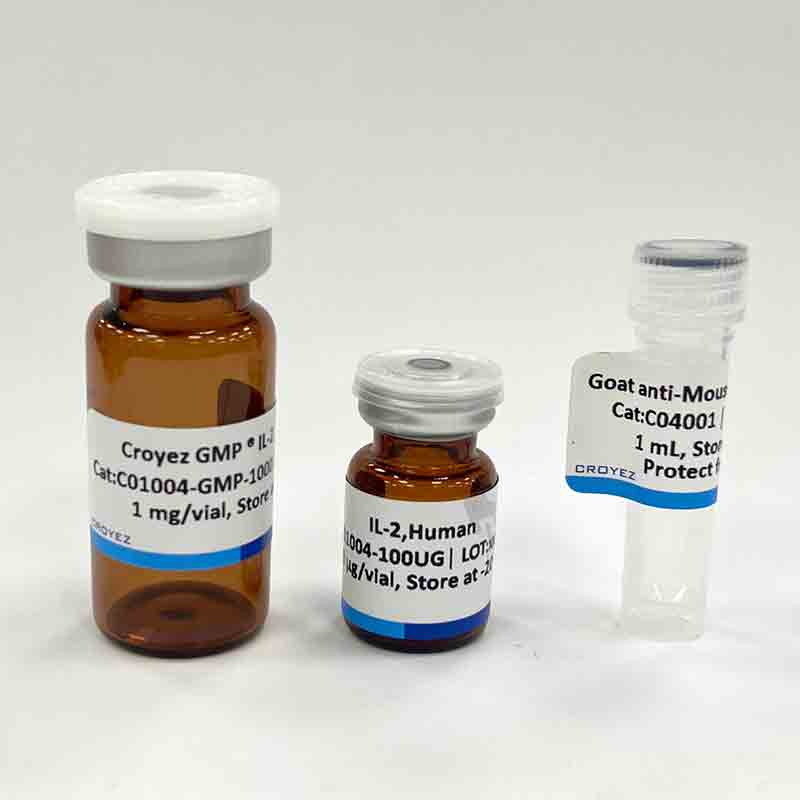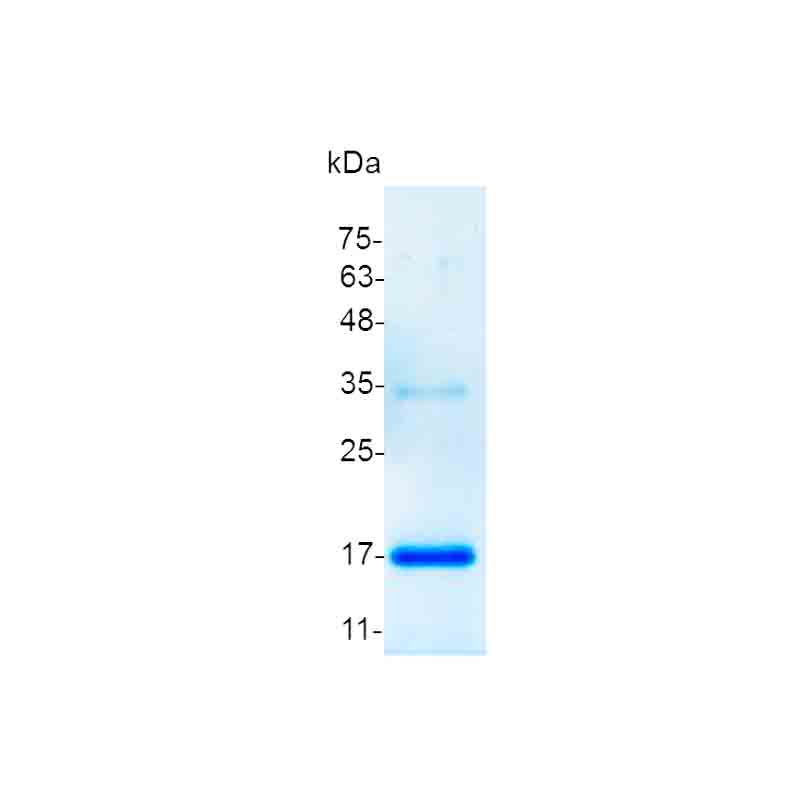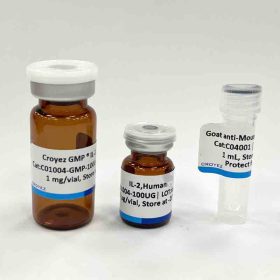Activins and inhibins, members of the TGF-beta superfamily, are disulfide-linked dimeric proteins that were originally purified from gonadal fluids as proteins that stimulated or inhibited, respectively, pituitary follicle stimulating hormone (FSH) release. Activin is strongly expressed in wounded skin, and overexpression of activin in epidermis of transgenic mice improves wound healing and enhances scar formation. Activin also regulates the morphogenesis of branching organs such as the prostate, lung, and kidney. There is also evidence showed that lack of activin during development results in neural developmental defects.
Sequence:
MGLECDGRTSLCCRQQFFIDFRLIGWNDWIIAPTGYYGNYCEGSCPAYLAGVPGSASSFHTAVVNQYRMRGLNPGPVNSCCIPTKLSSMSM
LYFDDEYNIVKRDVPNMIVEECGCA with polyhistidine tag at the C-terminus
Source:
Escherichia coli
Endotoxin Test:
<0.1 EU per 1 μg of the protein by the LAL method.
Activity:
Measure by its ability to induce hemoglobin expression in K562 cells. The ED50 for this effect is <1 ng/mL.
Purity:
>95% as determined by SDS-PAGE. Ni-NTA chromatography
Formulation:
The protein was lyophilized from a solution containing 1X PBS, pH 8.0.
Reconstitution:
It is recommended to reconstitute the lyophilized protein in sterile H2O to a concentration not less than 100 μg/mL and incubate the stock solution for at least 20 min to ensure sufficient re-dissolved.
Storage:
Lyophilized protein should be stored at -20°C. Upon reconstitution, protein aliquots should be stored at -20°C or -80°C.
Note:
Please use within one month after protein reconstitution.





